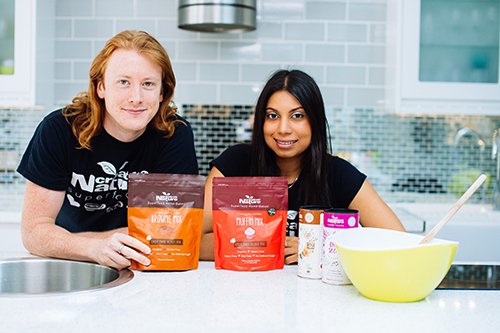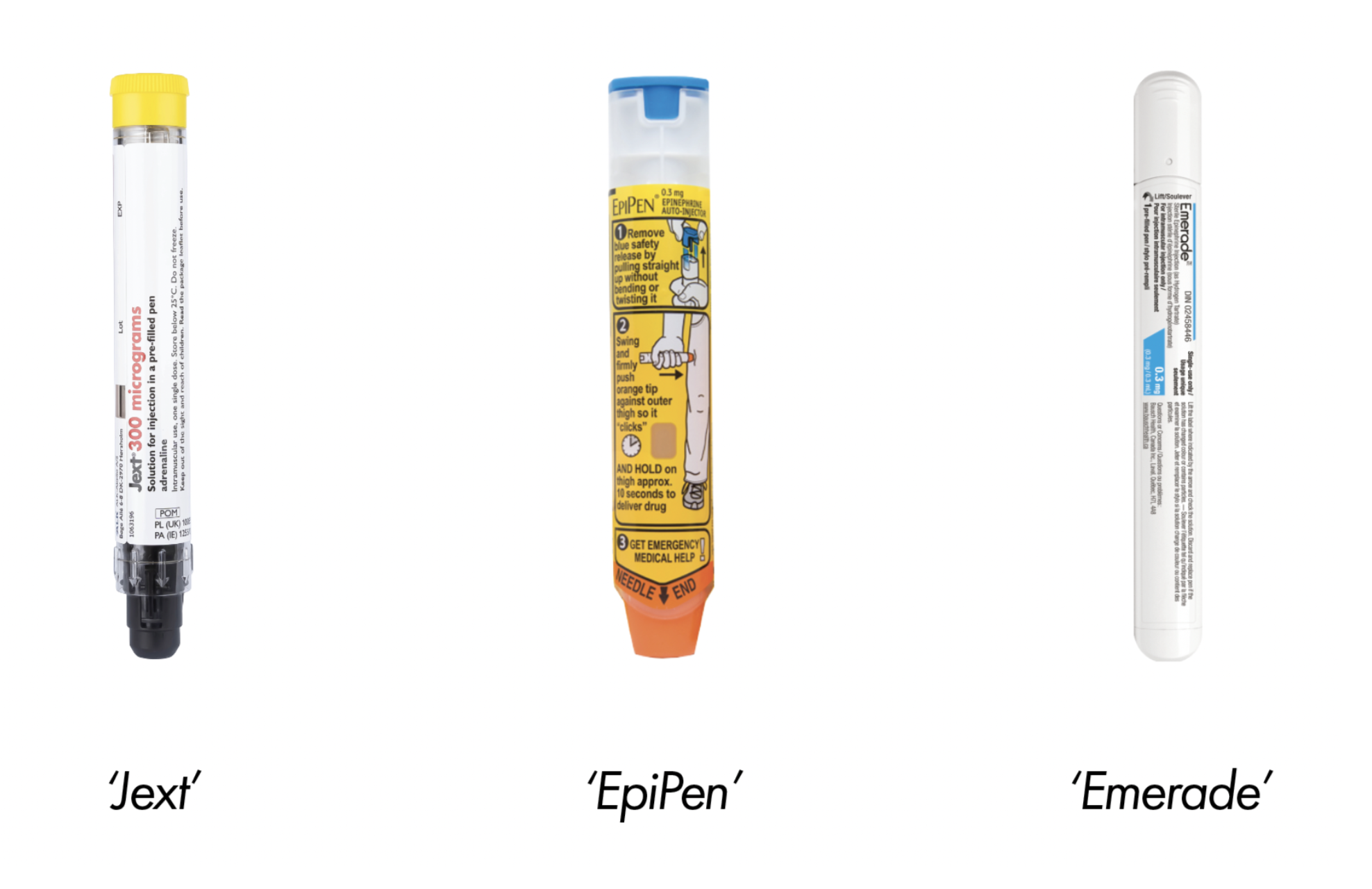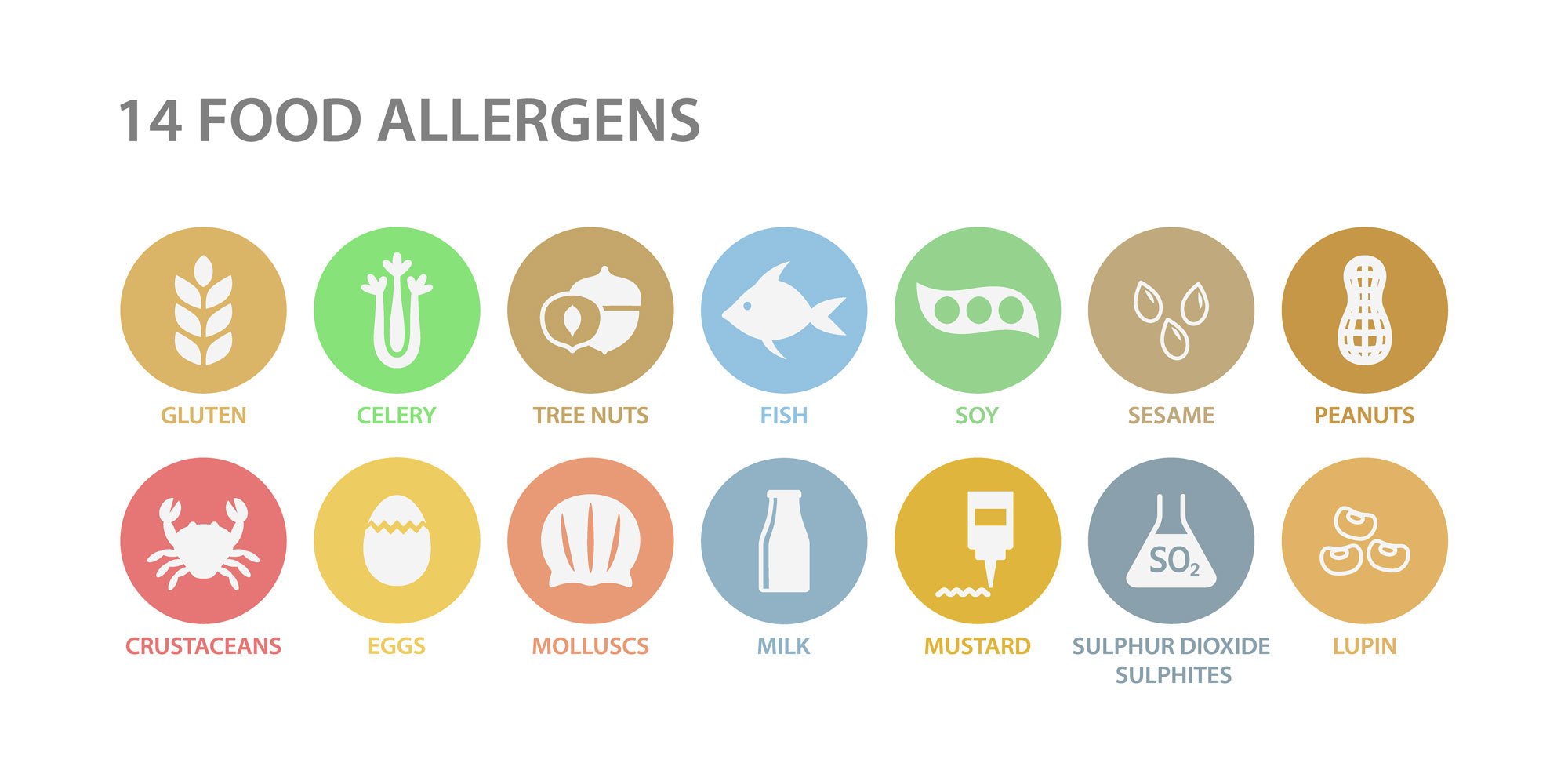Over the last few months, I’ve had the pleasure of interviewing a multitude of people, who all have one thing in common: They have lived their life with some degree of allergy, and have experienced (once or multiple times) what it’s like to have a severe allergic reaction (‘anaphylaxis’).
As someone who has – thankfully – never experienced anaphylaxis, I wanted to have conversations that unpicked the usual narratives around allergy, removing the statistics and instead letting those who live with the daily burden speak from their first hand experience.
To kick off this series, I wanted to dive right in with a serious allergy advocate: Julianne Ponan. Juliane is a recent recipient of an MBE for her work in allergy, most notably founding a multi-award-winning top 14 allergen-free food supplier called Creative Nature’. She lives with multiple severe allergies (As she puts it, “peanuts, tree nuts, chickpeas, lentils, sesame, poppy seeds, medication and many more things!”) and speaks from the heart about her experience and passions in the allergy space.
Watch of the full interview here or read through some of the highlights.
“My first anaphylactic attack was apparently when I was two years old.
I don’t actually remember that at all but my mum can tell me that she was absolutely petrified when she found out I had a cookie apparently at nursery and I had an allergic reaction at the time and they think it was either the nuts or it could have been dairy because I did have a dairy allergy then but it wasn’t as serious as the peanuts and tree nuts.
After that point I went through multiple tests from skin prick tests, blood tests, and everything, and then found out as I went along, I was allergic to a lot more.”

Julianne founded her business Creative Nature to provide food that is free from all the top 14 major allergens, helping those with even ‘may-contain;’ level allergies snack safely.
“There’s been quite a few times where I’ve had anaphylaxis and or a very severe allergy and not used the EpiPen and managed to bring it down with an antihistamine in the hospital… And there have been other times when I’ve been struggling to breathe and had to use adrenaline.
This one time when it was young, my dad had friends round and they had bought peanuts with them and they’d eaten some of the peanuts… I was like running around and hugging everyone, and I actually came in contact with peanut and unfortunately had an allergic reaction! They administered the EpiPen – I was very scared. I have to admit, I have a big needle phobia, I still do. But I think it’s really important that you learn to use an EpiPen from a very young age.”

The three brands of adrenaline pens (AAI’s) sold in the UK are Epipen, Jext, and Emerade. All three do the same job and are prescribed interchangeably by pharmacists.
When I was very young, even up to the age of sort of 14, my parents would administer an adrenaline pen for me. And I would be running around the garden going, Oh, no, I don’t think I need it yet. I don’t think I need it yet. But actually, it’s really important to make sure as soon as you’re getting those symptoms to take the adrenaline.
But that can be hard in itself to know exactly when because I found that when I got older, I was very much like, sometimes the anxiety behind it, I didn’t know if I was actually having a reaction or not. Whereas when I was younger, my parents knew exactly when I was having a reaction and they were very, very prepared for it. So when I got to university, I would say it was a little bit different and I was more anxious about eating out. And then I felt like, did I know whether I was having an allergy or not?…
In the grand scheme of things it’s such a quick process – it hurts for like a split second but then you rub your leg and it’s pretty much better!”

In the UK, the top 14 major food allergens are listed on all pre-packaged foods, as per Natasha’s Law, which came into effect after Natasha Ednan-Laperouse died due to an anaphylactic reaction to sesame in a Pret baguette.
We decided to choose to do a hard-hitting campaign (for allergies on planes) because we wanted not just the airlines to look at changing their ways, but mainly passengers. We wanted to get the emotional buy-in from people who don’t have allergies and get them to understand how difficult it is sometimes to fly with an allergy.
We’ve had thousands of people write in, say, oh my gosh, I didn’t even realize that I could harm someone. And for that, if we’ve just changed one person to think before they snack on board, or just ask the person next to them, do you have an allergy? That’s such a huge accomplishment for me, but the company in general, and I think this will help with all allergies.
And I think if we educate from the primary level, we’re only going to get a generation that’s kinder, less anxious and more inclusive going forward.

Creative Nature’s airport campaign was intended to shock travellers into the realisation that allergies can kill, and subsequently, the food they bring on board can be extremely harmful to others.
“When you’re at school, for example, I used to have to sit on a separate table. I just don’t think that should be the case. Like it should be more inclusive and there are multiple children with allergies now. I think it’s one in every 12 children, which results in like nearly two in every classroom… and 30% of those have multiple allergies. So there needs to be some sort of education in schools.”

Our Anaphylaxis Kitt service was created by our founder Zak, who also lives with severe allergies, with the goal of creating a new standard for allergy care.

